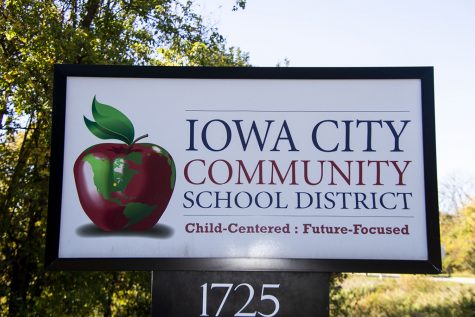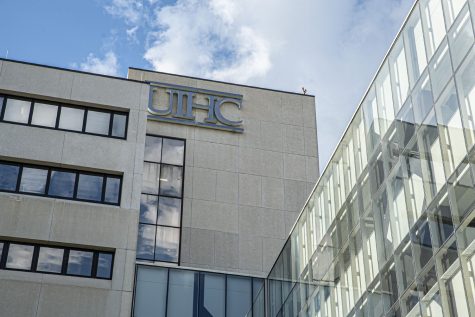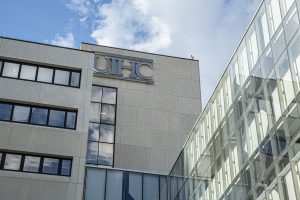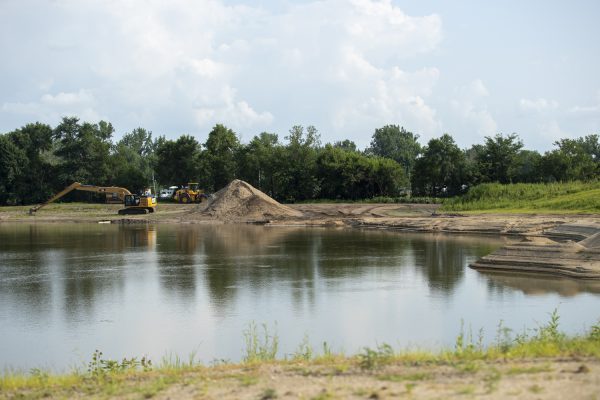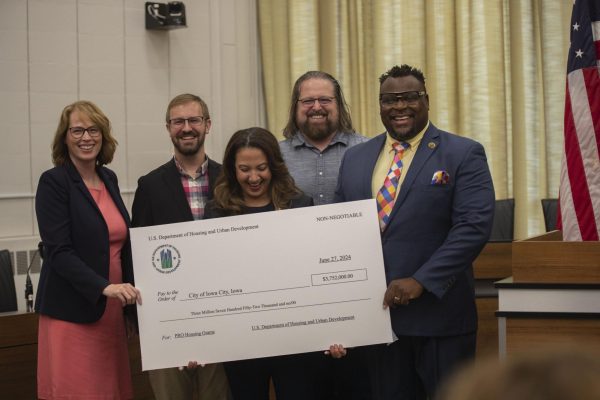University of Iowa cystic fibrosis research team awarded $11.5 million grant
University of Iowa researchers have been awarded a grant to help research cystic fibrosis treatment using molecular therapies.
November 9, 2020
University of Iowa cystic fibrosis researchers received $11.5 million from the National Institutes of Health to research therapies for patients with the lung disease.
The research team, which consists of UI Professor of Pediatrics Paul McCray, Pappajohn Biomedical Institute Director Michael Welsh, and Department of Anatomy and Cell Biology Chair John Engelhardt, is working with other researchers at the UI to study better methods of helping patients with cystic fibrosis.
Cystic fibrosis is a genetic disease that causes lung problems, Welsh said. People with cystic fibrosis are missing a pore that allows liquid to flow through, he said, which causes a buildup and obstructs the airway of a patient who has the disease.
The disease is caused by gene mutations that damage a protein called cystic fibrosis transmembrane conductance regulator.
The researchers are trying to fix this issue a few different ways, the team said. Each project focuses on a different solution to the problem occurring in cystic fibrosis patients, but they all share a goal of helping patients who can’t use medicines as treatment.
Engelhardt said the ultimate goal for this project is to create treatments, especially for the 10 percent who don’t benefit from the small molecular therapy that most cystic fibrosis patients do.
He said the research team hopes these treatments will help individuals for a lifetime.
“Ultimately we’re hoping to be able to direct the field for new therapeutics. Our 10- to 20-year plan is to gene edit the stem cells to change the base sequence – the spelling error – within the genome directly within stem cells in the right compartments in the airway,” Engelhardt said. “It’s not just one goal – it’s going to be a process that will continue over the decades – attempting to improve upon the previous studies and results.”
Engelhardt said the program project grant was established based on decade-long relationships between the three researchers. The team meets every couple of weeks to figure out how its individual projects can work together to help cystic fibrosis patients, he said.
RELATED: Cystic-fibrosis breakthrough shows promise
Engelhardt said his project focuses on a pulmonary ionocyte, a lung cell that may defend the lungs from harmful particles, which may be responsible for secreting the majority of the salt in the airways. He said his project will look at how it could correct defects in the airways or patients with cystic fibrosis and how it may allow for good clearance.
His team is working to determine what cell types could mimic this function because of how infrequent pulmonary ionocyte can be.
Welsh’s project focuses on trying to make a prosthetic channel for the salt to flow through the airways. They are trying to develop a channel that could replace the cystic fibrosis transmembrane conductance regulator and allow salt to go through the epithelium – layers to cells that form sheets – to produce liquid.
Welsh said the team hopes to continue to research these efforts, even past its five-year funding from the grant.
“That’s what this grant does — it allows collaboration, it allows interactions,” Welsh said. “These projects are sort of different, but they fit together for a common purpose. We have big advantages from working together — a variety of different commonly shared things that we can be expert at, and we don’t have to do it individually, and it’s much more cost effective.”
McCray’s project focuses on developing small drug treatments to try to restore the function of the protein that was affected by the delta f508 mutation, which deletes nucleotides, resulting in defective manufacturing of the protein. This process will allow them to deliver some molecular machinery to the cell to change a single nucleotide in a specific location of the gene.
McCray said with this grant, they hope to be able to create treatments that can have long-lasting effects on cystic fibrosis patients. The team is grateful for this funding, he said, because of the lasting impacts it can have on patients with cystic fibrosis.
“It’s amazing to receive this money,” he said. “We feel incredibly proud of our team. We’re also humbled that we were chosen to get an award like this, because it’s a very big deal.”
Welsh said he is thankful to work at the UI and with this team because of its collaborative nature that he can’t find anywhere else.
“Some places, for me to succeed, you have to fail. It’s not the way it is here,” Welsh said. “I think that members of this program project grant and all the members of our cystic-fibrosis center have this feeling that if one person has success, we all get to celebrate that because we’re a team. It’s a special place here.”





